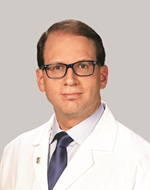

Sarcomas are one of the rarest and most complex cancer types, making up less than 1% of all new cancer diagnoses in the United States. Yet with nearly 100 sarcoma subtypes affecting individuals of all ages, experts say that early detection, education and access to high-quality care are especially important.
Sarcoma: A Rare and Diverse Disease
According to the American Cancer Society, roughly 13,520 new soft tissue sarcomas will be diagnosed in 2025 (7,600 in males and 5,920 in females), along with an estimated 3,770 new cases of bone cancer, or osteosarcoma (2,150 in males and 1,620 in females). While these numbers are small compared to other cancer types, the impact is significant.
Sarcomas vary widely, according to experts with Baptist Health Cancer Care in Miami and Boca Raton. Soft tissue sarcomas—such as gastrointestinal stromal tumor (GIST), leiomyosarcoma and chondrosarcoma—are more common in adults, they say; bone sarcomas, including Ewing sarcoma and osteosarcoma, more often affect children and young adults.
This diversity makes diagnosing and treating sarcoma uniquely challenging and requires a personalized approach for every patient.
Expert Sarcoma Care Close to Home
Physicians at the Eugene M. & Christine E. Lynn Cancer Institute, part of Baptist Health, at Boca Raton Regional Hospital, and at Baptist Health Miami Cancer Institute treated nearly 100 patients for sarcoma in 2024. The most common subtypes seen across both centers were liposarcoma and undifferentiated pleomorphic sarcoma, both of which are soft tissue sarcomas.
Patients treated at Baptist Health Cancer Care benefit from the expertise of a coordinated, multidisciplinary team—including surgical oncologists, orthopedic oncologists, medical and radiation oncologists, radiologists and pathologists. This team-based model ensures a thorough evaluation and tailored treatment plan for each case.
“Anyone with a sarcoma should consider going to a sarcoma center of excellence where multiple specialties come together to deliver the most advanced, evidence-based care,” says Harold Huss, M.D., a surgical oncologist at Lynn Cancer Institute.

Harold Huss, M.D., a surgical oncologist at the Eugene M. & Christine E. Lynn Cancer Institute, part of Baptist Health, at Boca Raton Regional Hospital
Early Detection Matters with Sarcoma
Because sarcomas are often painless in the early stages, they can go undetected until they are more advanced. The most common early sign is a painless lump or mass. Patients should see a physician if they notice:
· A new or enlarging lump
· Asymmetry or swelling on one side of the body
· Persistent bone pain or weakness in a limb
“Outcomes are significantly better when sarcomas are found early, while they’re still small and localized,” adds Dr. Huss.
Malignant Melanotic Nerve Sheath Tumor
One particularly rare and aggressive form of sarcoma is malignant melanotic nerve sheath tumor (MMNST). Typically seen in young adults, MMNST arises in peripheral or cranial nerves and often has melanocytic characteristics, meaning that it shows properties or behavior associated with the specialized skin cells responsible for producing melanin, the pigment that gives skin, hair and eyes their color.
These tumors are commonly linked to mutations of the PRKAR1A gene and a rare genetic condition known as Carney Complex, which increases the risk of various tumors—including those affecting the heart and endocrine system. MMNSTs have a high recurrence rate and often metastasize to other parts of the body, Dr. Huss adds. Treatment usually includes surgical resection followed by radiation. For metastatic cases, chemotherapy may be needed.
Evidence-Based Treatment is Important
While a cancer diagnosis can lead some patients to seek alternative therapies like juicing, holistic remedies or unproven medications, Dr. Huss cautions against delaying or avoiding standard care.
“There is strong evidence that multidisciplinary treatment—including surgery, chemotherapy and radiation—offers the best outcomes for sarcoma,” Dr. Huss emphasizes. “Alternative treatments may just delay care and allow the disease to progress.”
Whether facing a new diagnosis or supporting a loved one, seeking care from experienced specialists with a multidisciplinary sarcoma program such as that at Lynn Cancer Institute can make a difference. Click here for more information about sarcoma diagnosis and treatment.

